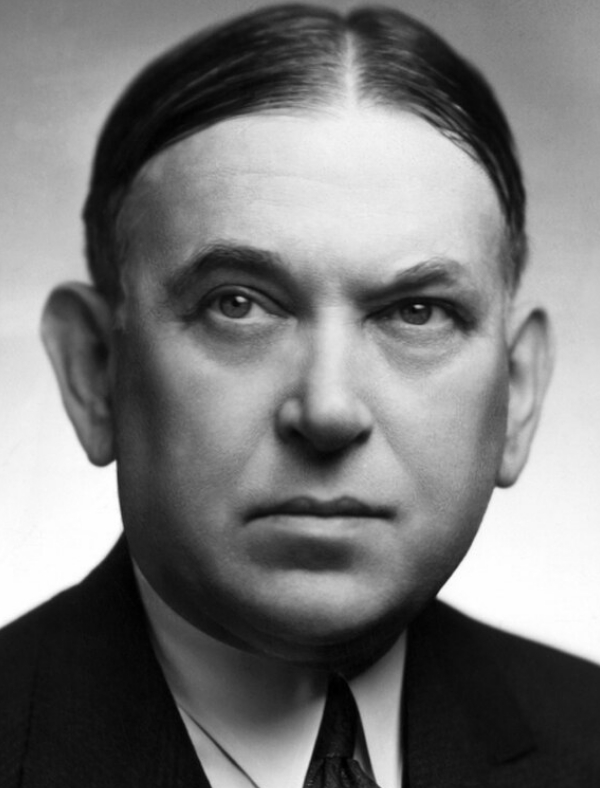On this date in 1880, H.L. (Henry Louis) Mencken, atheist and journalist, was born in Baltimore. Although his father was agnostic, his Lutheran mother sent him to Sunday school, which he later defined as “a prison in which children do penance for the evil conscience of their parents.” (A Mencken Chrestomathy,1949.) The cigar-chomping, iconoclastic journalist worked most of his life at the Baltimore Sun, where he began his trademark column, “The Free Lance,” in 1911.
Mencken also co-edited Smart Set magazine (1914-23) and edited The American Mercury magazine (1925-33). His lifetime production of 28 books included a six-volume collection of his essays, Prejudices (1919-27), In Defense of Women (1917), Treatise of the Gods (1930) and an autobiographical trilogy, ending with Heathen Days, published as one volume in 1947.
A sardonic critic of the “booboisie,” he coined the term “Boobus americanus” and was famed for his coverage of the 1925 Scopes trial in Dayton, Tenn. Mencken’s many epigrams include: “Faith may be defined briefly as an illogical belief in the occurrence of the improbable.” (The New York Times Magazine, Sept. 11, 1955). “The chief contribution of Protestantism to human thought is its massive proof that God is a bore.” (Minority Report, 1956.) “No one in this world, so far as I know … has ever lost money by underestimating the intelligence of the great masses of the plain people.” (“Notes on Journalism,” Chicago Tribune, Sept. 19 1926.) “Puritanism — the haunting fear that someone, somewhere may be happy.” (A Mencken Chrestomathy, 1949.)
In 1930, after a seven-year courtship, he married Sara Haardt, a professor of English at Goucher College in Baltimore and an author 18 years his junior. Haardt had led efforts in Alabama to ratify the 19th Amendment. Haardt was in poor health from tuberculosis throughout their marriage and died in 1935 of meningitis. Mencken suffered a stroke in 1948, which left him aware and fully conscious but nearly unable to read or write and able to speak only with difficulty. He died in his sleep at home in Baltimore at age 75. (D. 1956)


